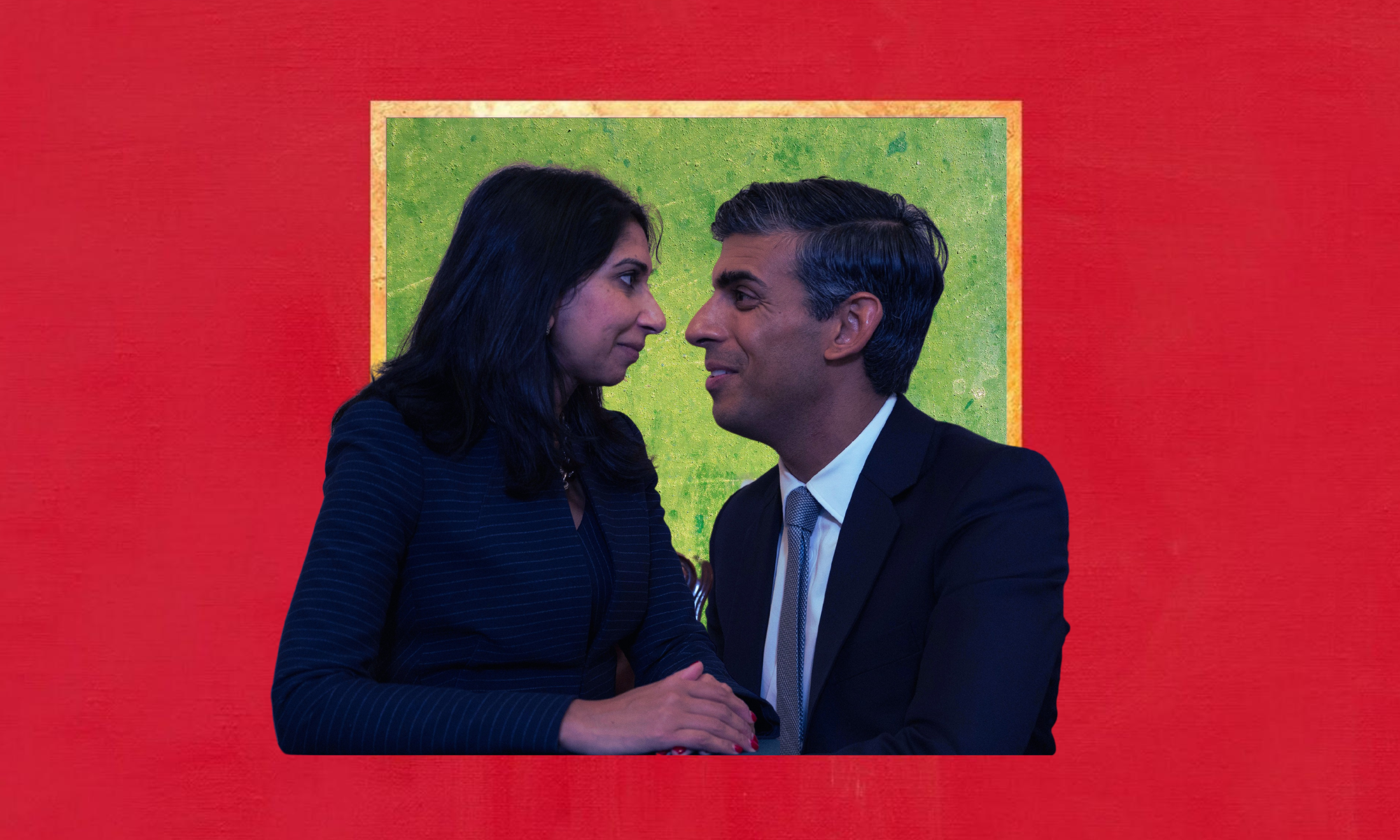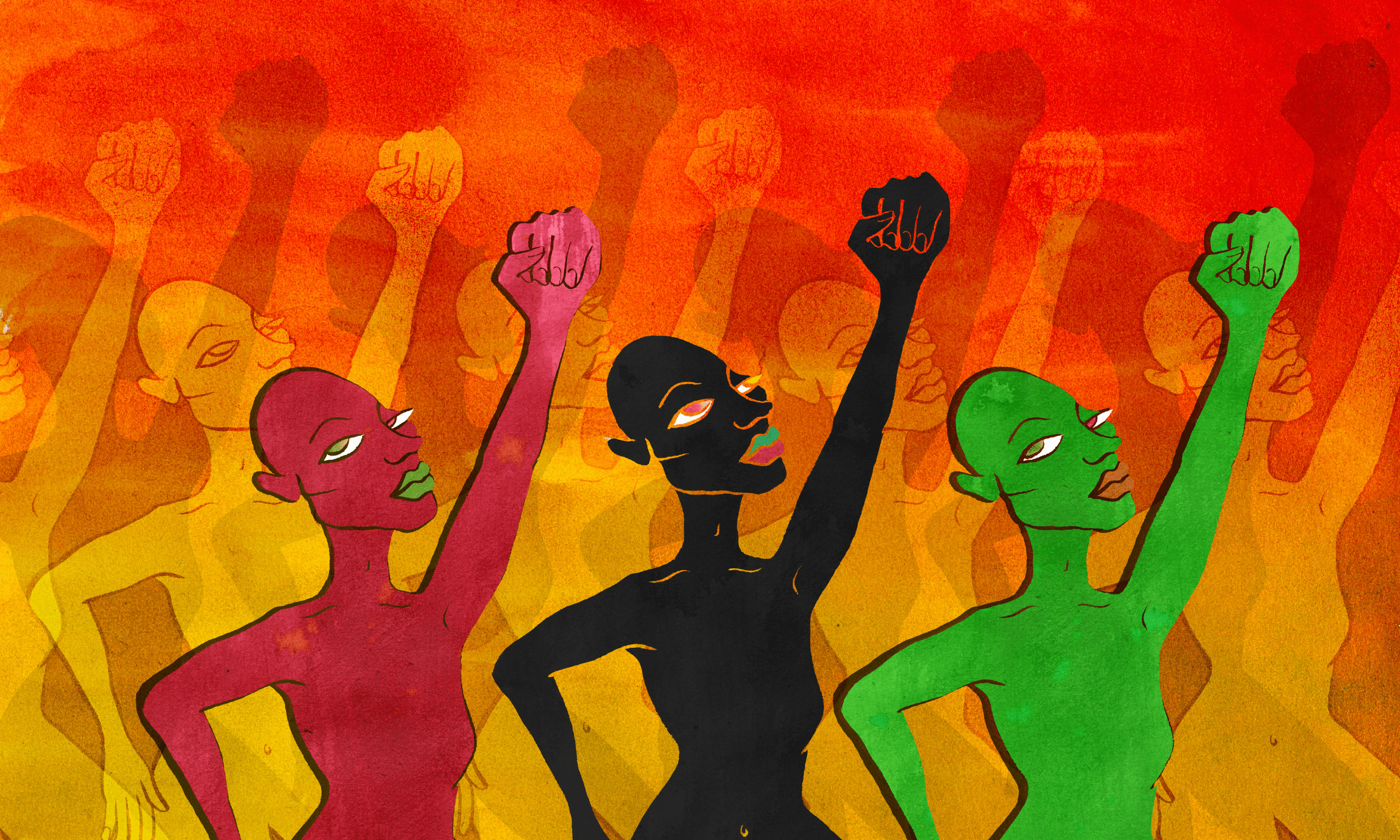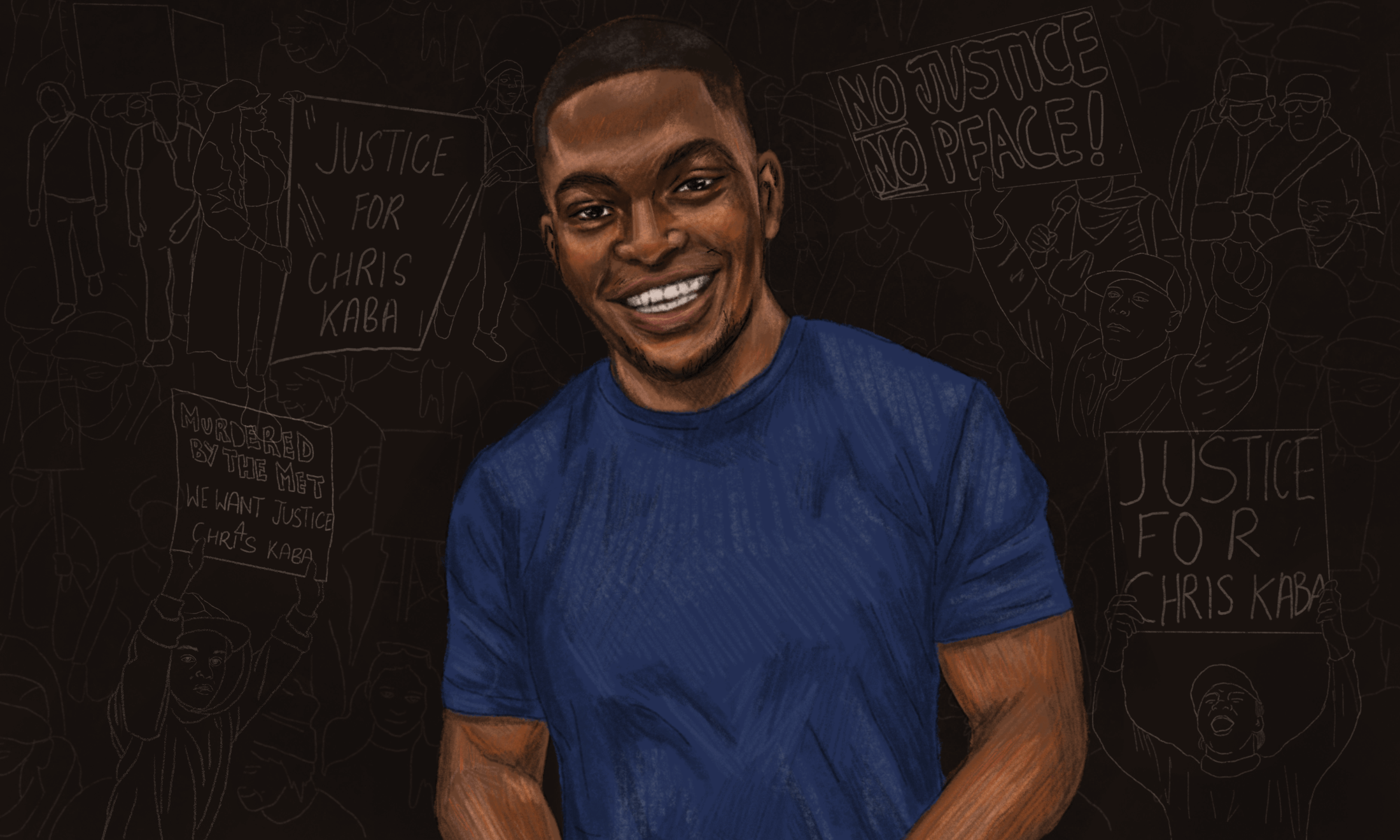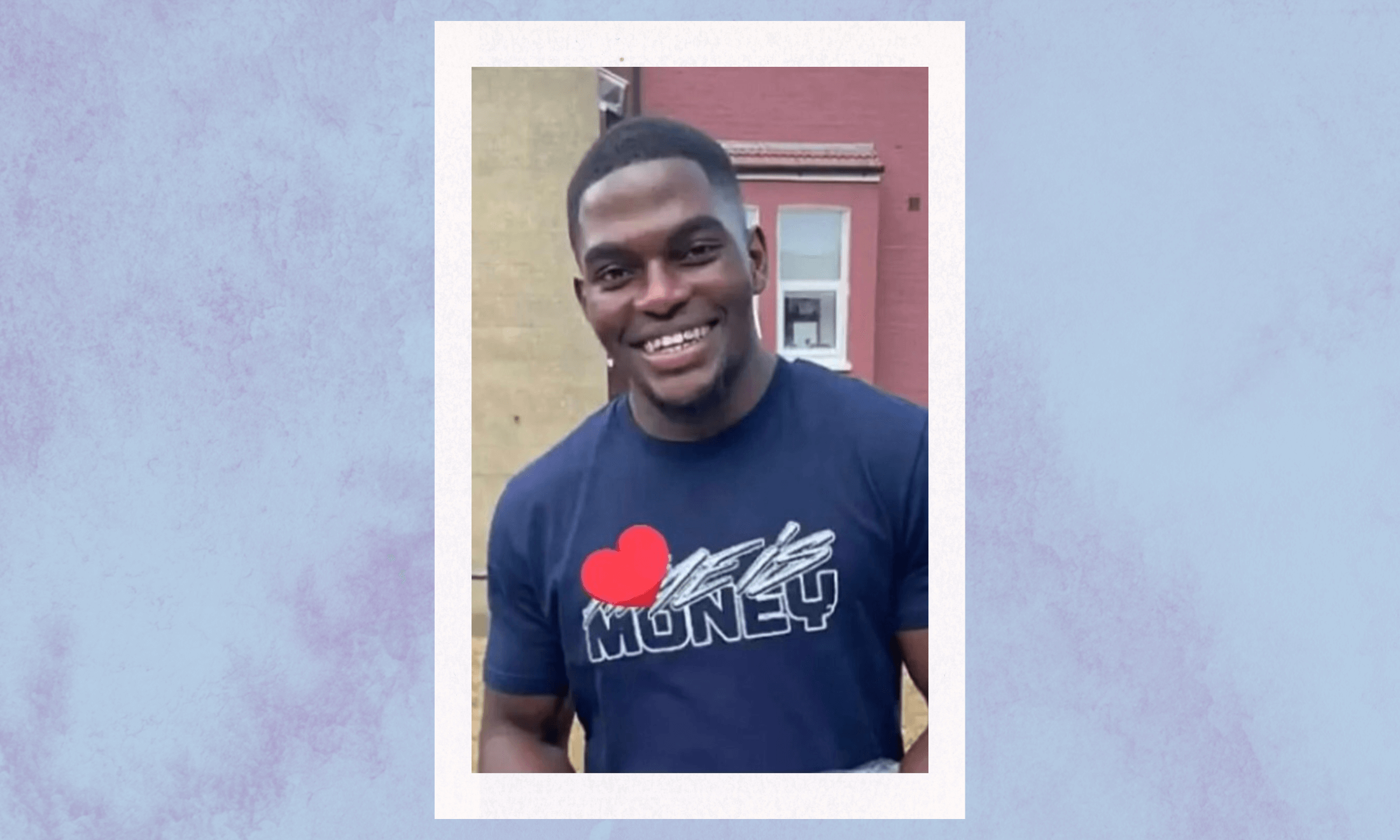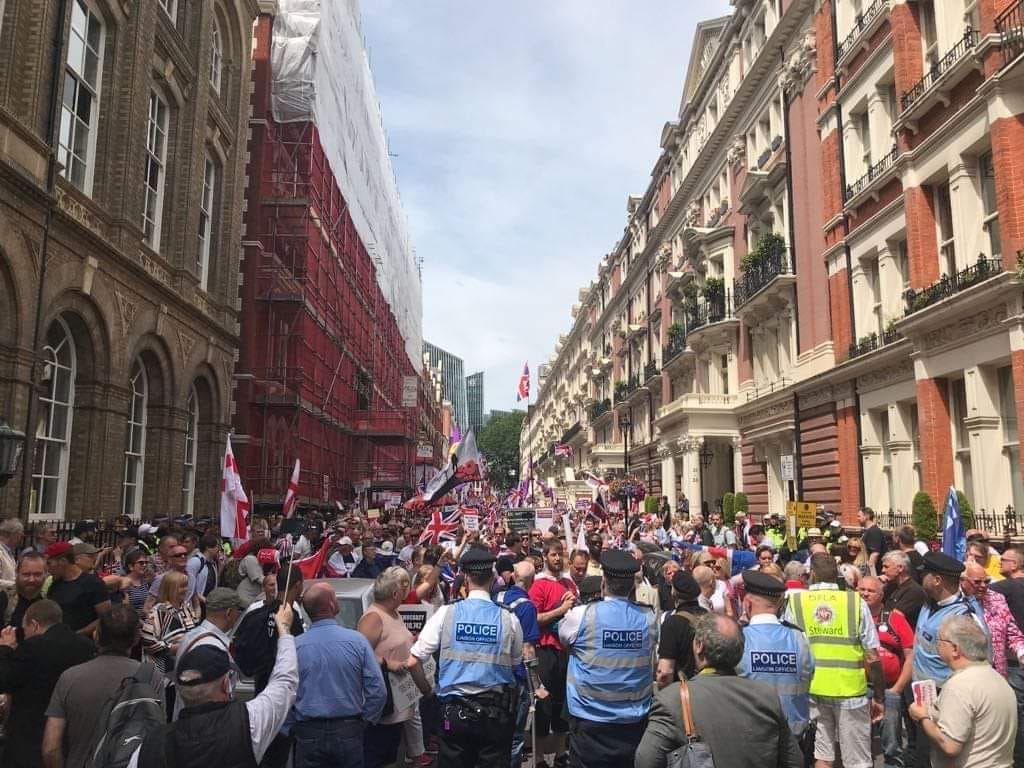
Racist anti-Black Lives Matter protesters are not far right outliers – they’re shaping mainstream society
As Boris Johnson appoints someone who believes that institutional racism is a ‘myth’ to head up the UK race inequality commission, we need to understand that right wing rhetoric is more accepted than ever.
Dawn Duhaney
16 Jun 2020
Photography via Facebook / Democratic Football Lads Alliance
Over the weekend, the nation watched as racist anti-Black Lives Matter protesters, or self-styled “statue defenders”, did Nazi salutes, attacked the police, pissed on monuments and generally looked for black people to beat up. The protesters have been widely condemned as “mindless hooligans” and their actions as “utterly shocking violence” from the far right. The Mail on Sunday even went as far as asking “what had become of Britain’s tolerant society?”.
I found the framing of these events remarkable for a couple of reasons. The far right rioters at the anti-Black Lives Matter protests were not outliers. Though not everyone might be as physically violent as they were, many of their toxic views and opinions are prevalent in mainstream society today.
For too long, there’s been a hesitancy in public conversation to dismiss or exclude far right views on in order to uphold values of impartiality or free speech. While openly racist rhetoric amongst UK politicians is not new, in recent years this began in earnest with Brexit – organisations like the BBC gave air time to smaller groups like UKIP who were able to bring far right perspectives on immigration into the mainstream. We have politicians in power right now who are still actively pandering to those narratives on immigration (Priti Patel), meanwhile, those who have said the most heinous things about black people in the past (Boris Johnson), are able to hold the highest positions in government.
“We live in a society where more subtle racist rhetoric can thrive and be accepted as opinion”
Whether an intended or unintended consequence, punishing and deeming presenters who call out racism “not impartial” results in a society where more subtle racist rhetoric can thrive and be accepted as “opinion”. In relation to these recent far right marches, the media has hesitated to even name the racists as racists; instead, falling over themselves to name them as “counter protestors” or “anti-anti-racists”. What?
Meanwhile, in the darker corners of the internet, Tommy Robinson (Stephen Yaxley-Lennon), a far right Islamophobic activist and all-round fool, receives hundreds of thousands of views online whenever he posts – despite being kicked off of mainstream platforms like Instagram, Facebook and Twitter. Last year, political social media monitoring companies tracked spikes of online interest and engagement for the blithering xenophobe and found that he that “sometimes eclipsed the numbers for mainstream politicians” such as Theresa May or Boris Johnson.
His kind of rhetoric has also thrived in football communities. Though there is a long-established problem of football hooliganism in the UK and Europe, there has to be an increased cause for concern when these hooligans become explicitly attached to far right racist causes. The most recent demonstrations centring around Black Lives Matter were loosely organised, but, importantly, the organisation that did exist centred around football – the UK’s favourite sport. According to reports, the hooligans were led by the Islamophobic group Democratic Football Lads Alliance and supported by fans from Chelsea, Millwall and West Ham.
Sanjay Bhandari, the head of Kick It Out, which works to tackle discrimination in football, has said recently that racism in football is “worse than it was five years ago”. Kick It Out’s most recent report on discrimination found that reports of racism in football have risen by 43% since last season. I would argue that this is reflective of a wider shift to more overt displays of racism in the UK in the same time period. Government statistics in England and Wales for 2018/19 showed that there was a mighty 103,379 offences “where one or more hate crime strands were deemed to be a motivating factor”.
“Even this week, we’re seeing the government bring in someone who has previously denied the existence of institutional racism to handle a new review into systemic racism”
All of this, combined with a lack of acknowledgement about the truth of Britain’s colonial past in the education system has resulted in huge gaps in the UK’s collective knowledge of systematic racial prejudice and white privilege. Lack of education puts people on “the back foot” and creates structural hurdles which make it more difficult to dismantle racist rhetoric against people of colour and immigrants. Even this week, we’re seeing the government bring in someone who has previously denied the existence of institutional racism to handle a new review into systemic racism, rather than take on the actions that have come from multiple previous reviews, such as Windrush Lessons Learned.
What I have noticed during this period is the amount on white and non-black allies in the UK that are acknowledging and confronting racism in society for the first time. I have seen countless Instagram stories from friends sharing reading lists, videos and resources on white privilege and how to be an ally. I’m glad that people are stepping up to discover allyship, but allies need to acknowledge and commit to dismantling the structural inequalities, overt and covert that perpetuate racism. This starts with challenging personal biases but extends further.
We need to acknowledge as a society that the far right isn’t always an extremist group featured on TV documentaries. Far right rhetoric exists in the mainstream right now, amongst our elected politicians and even potentially in our own families, friendships and social circles.

